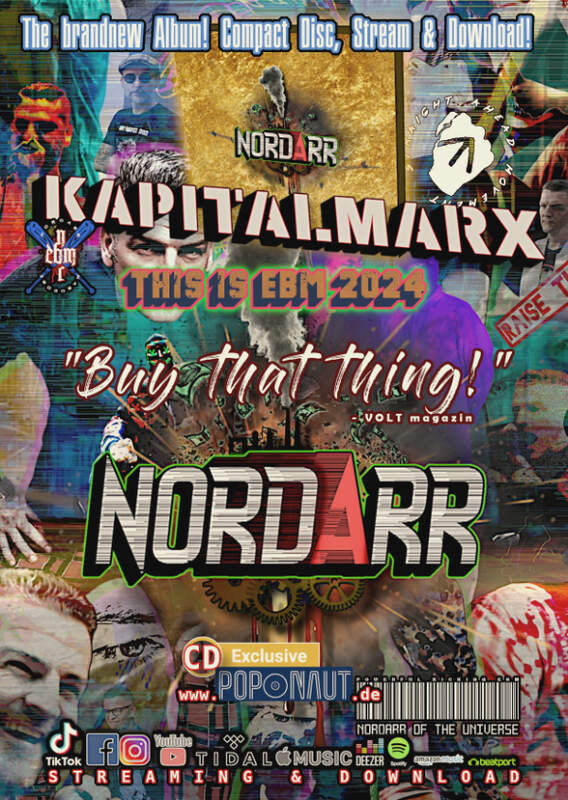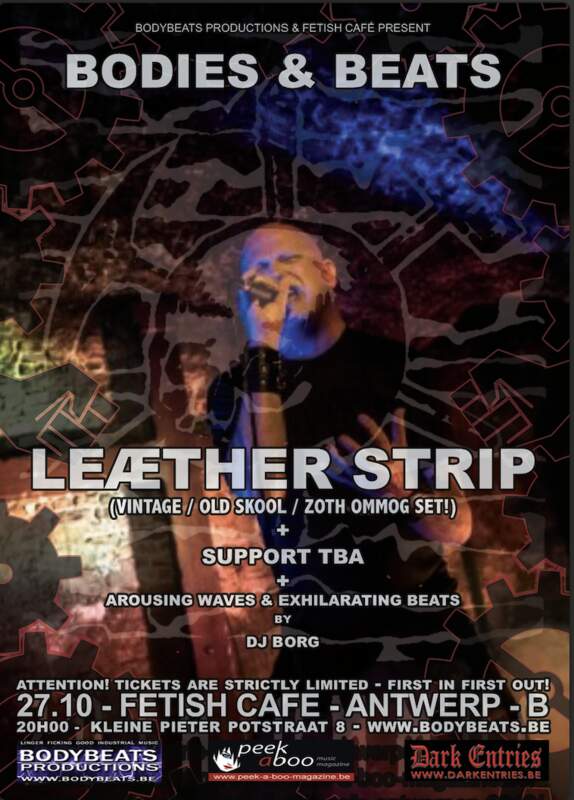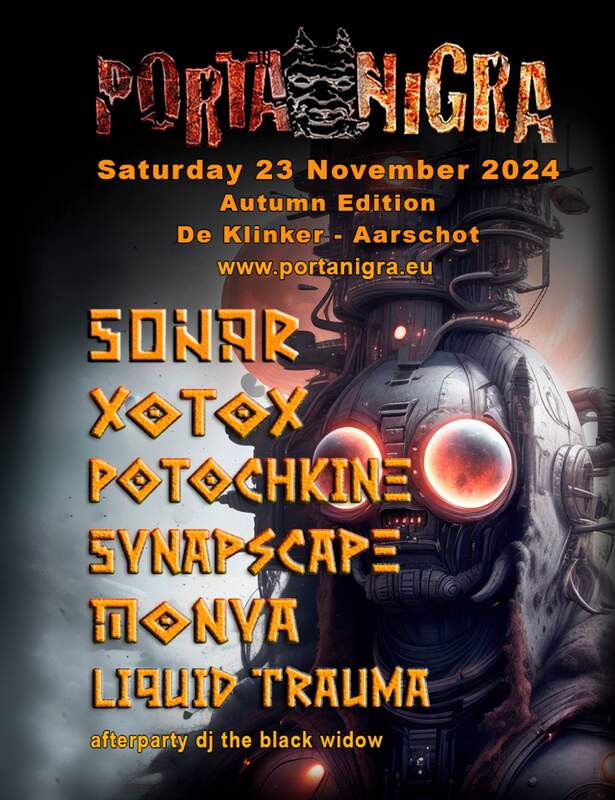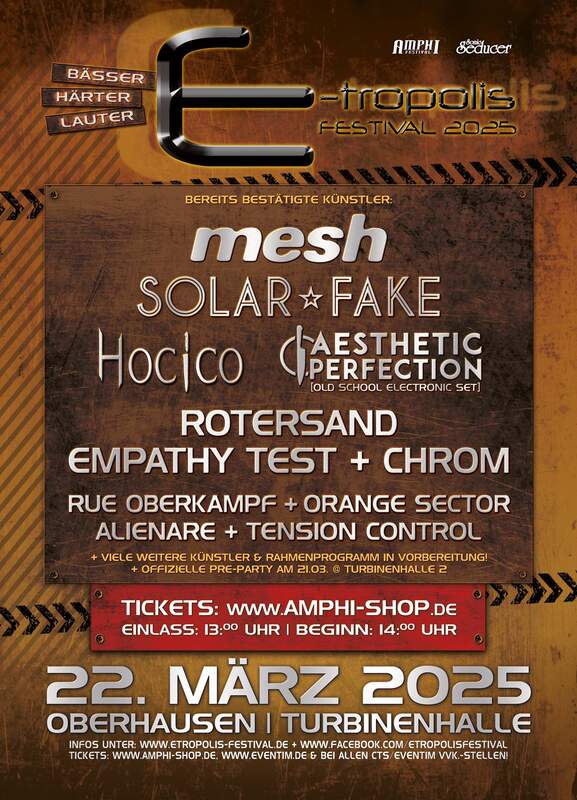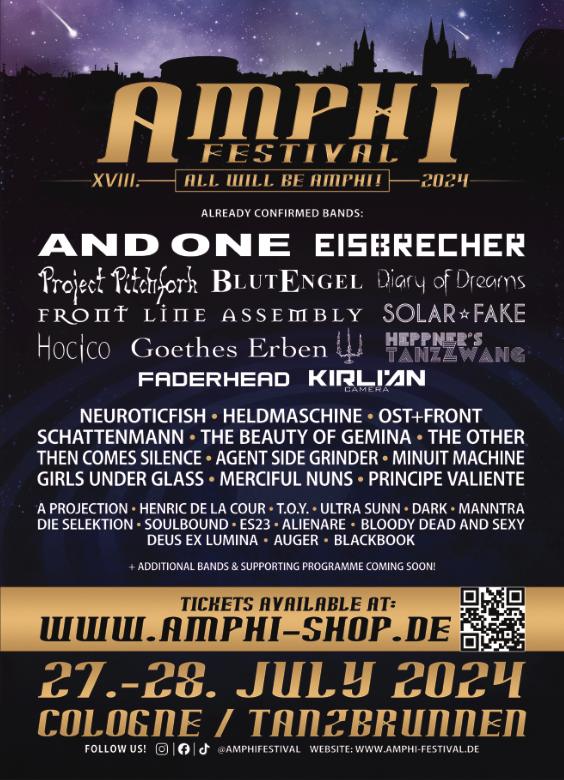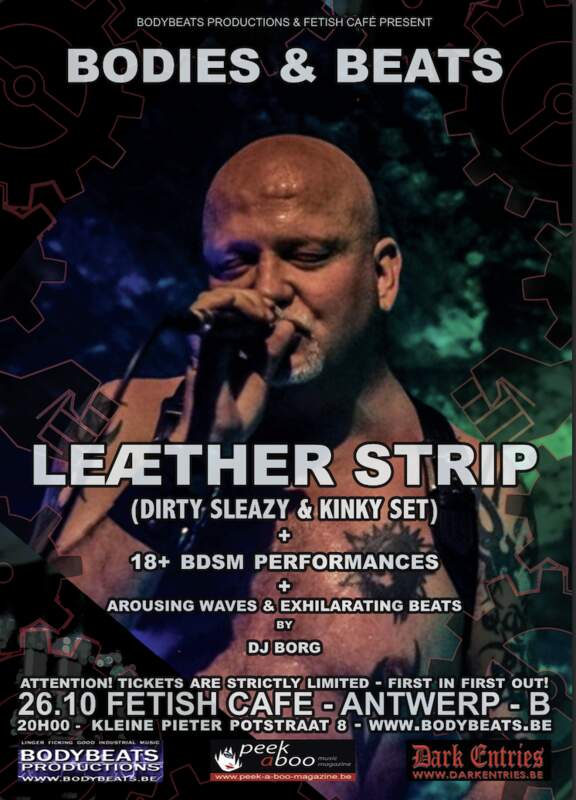AARON TURNER (SUMAC, ISIS, MAMIFFER...)
'It’s like a dialogue between me and what I’m hearing...'
20/01/2020, Danil VOLOHOV
photos: © AF Cortés,Paulo Gonzales, Peter Troest
Since the breakup of Isis, Aaron Turner didn’t slow his tempo down. To the contrary, Aaron continued his work with numerous collaborations and projects. Talking with me, he presents his vision on each of them – describing each of them as experience, and a certain idea he wanted to realize. The recent release of SUMAC recorded with Keiji Haino would be a good example of that.
And of course, it should not be overlooked that Turner, as an artist, always tries to find something new. Whether it’s SUMAC, Isis, Mamiffer, Old Man Gloom or his solo-works. Aaron Turner stays true to himself. And like a good painter, he explores new palettes and colours, ways of works and materials without fear.
In the interview for Peek-A-Boo magazine, Aaron Turner told us about the foundation of Hydra Head Records and musical scene in Boston, about very first influences and writing process, about Isis and his solo-works, about the formation of SUMAC and coming releases.
You said once that at the beginning of your career you were scared to play the guitar and sing along at the same time. How long did it take for you to accept yourself as a singer?
Em…I’m still working on accepting myself as a singer. But it’s improved a lot. I think I’m still in the process of learning to accept myself as a singer. And believe something that’s for me is a valid way to express myself creatively. I think, originally it was just something secondary to playing the guitar. And almost something that I had to do. At least, in the context of Isis. We didn’t want to be an instrumental band. And there was no one else who wanted to do the vocals. We also didn’t want someone who was just a singer. We didn’t want a frontman who was just a vocalist. That sort of only-left-to-me to take on that task. Out of necessity, I did that. And eventually, I came to at least be able to enjoy it some of the time. And, at least start appreciating my voice and my guitar-playing.
At the beginning of your career hardcore was your main inspiration and point of entry. And of course, with Isis, you provided a little bit of hardcore with something new. What drove you from these tendencies you’ve been exploring at the beginning of your career?
I think, originally, as soon as I started being interested in music, beyond what my older sister was listening to. And what my parents were listening to, I gravitated towards metal. That even pre-dated my interest in punk and hardcore. At first things I listened to were really exciting to me. Bands like Metallica and Slayer. And maybe even before that – Guns N’ Roses and Motley Crue. But it sort of got darker and stranger from there. And it seemed for a while to be, that I was sort of on a quest to find a sound and bands that were exploring furthest extremities of music – dark and heavy. Those things sort of let me down the path that eventually led to a sort of experimental music. And also to noise. I think, when I first started hearing things like Earth, that almost de-constructed metal to the point being almost minimalism. Then also, hearing more abstract things. Like hearing Merzbow for the first time, really stroked me. Because they had a similar kind of energy that I appreciated about metal. And they also had much more abstract nature. That abstract element of the music and the mystery of what it was and what I was hearing was really compelling to me. So I think there was a…Love of human willingness to do things that sort of out-of-reach. Trying things that don’t necessarily make sense initially. And to do things even inappropriate. That for me was when I found my “calling” – if you’d put it in that way. To go down that road. And figure out where it may lead me. Again, I think it’s an ongoing process. And that’s what makes it interesting to me. Is continuing to explore the unknown. Maybe not necessarily in a sense of really innovating music. But in a sense of really discovering things that for me are unknown. Things that sort-of-push my process along.
After moving to Boston you created Hydra Head Records and united lots of different musical directions. That period of musical history is quite interesting to spoke about. But how can you describe the entire musical environment of that scene? What was most exciting about it?
Part of the thing that was exciting for me was just meeting other people who were interested in underground music. I grew up in Santa Fe, New Mexico where some people were aware of these things. And that was certainly my discovery of a lot of underground music happened. But going to Boston, I was able to literally access much bigger network of music. And musicians. And people who were in some way or another involved in the world of underground music. I think, one of the big factors was just being able to see shows regularly. Where I grew up – in Santa Fe, there were shows. Occasionally. But not that often. Whereas Boston was a centrally-located city on the American North-East where a lot of bands were touring regularly. So finally I was able to go and see a lot of these bands I’ve been listening to through the years having this experience in live-setting. Which for me, was a whole another level of experience. And eventually, the gateway for me to play as a live-musician myself. Also, I started coming to contact with the people who had somewhat similar interests to me. Guys that were making hardcore music, but also were interested in things that lay well beyond that kind of narrow set of perimeters. One of the first people I hang out a lot in Boston and ended up also doing some project together with was Jacob Bannon from Converge. He and I both were really into things like Swans and Godflesh and Neurosis. He was also the first person I heard about Diamanda Galas from. And other forms of music that were similarly abrasive. But were stylistically quite different. Where, I think, a lot of this trajectory became solidified for me. Also, kind of shaped what the label was doing helping me to tap into a larger network of music and bands, different artists and people all over the place.
I remember in one of your interviews you said that right before the break up of Isis you got the idea of this new project you wanted to create. And things you wanted to explore with. That was the beginning of SUMAC. How long it took for you to put your ideas together and the band itself?
I think some of the ideas I had at first were first necessarily about another project. I think, initially, some of the things that ended up taking shape in SUMAC were the things I wanted to do in the context of Isis. And I tried to do but it didn’t really work in that setting. I think, there’s a willingness to experiment early on with Isis. But as the band went early on, our focus in some ways became more and more narrow. Also, the interests of the people involved diverged a little bit. The things I was interested in, presuming the things that were more abstract and even compositionally deconstructive, weren’t really the things some of the people in Isis were interested in. I also think that I wanted to take things into a darker, heavier direction. And again, it wasn’t where we were really comfortable going as a group. So some of the ideas I had that eventually turned into SUMAC probably started around 2002-2003. But they didn’t really come to the point until I started SUMAC later on. I’d also say, that at the same time, the things I wanted to do were kind of things that I was hearing in my head…Maybe I wasn’t even able to do it, at that point. So it took me a while to figure it out. How to make the kinds of sounds I was imagining. Also to grow as a guitar player, which again, also took some time.
With all the projects of yours and collaborations. Is it hard for you to find out the people to work with?
I think, when I was younger it was harder. Partially, because the interests I had were a little bit more eccentric. Or a little more out there I guess, then I lot of people I encounter were into. And another factor of that is when I first moved to the East Coast I didn’t really know a lot of people. The more I tour, and the more I run the label, the more I actively pursued the process of communicating and discovering other people the easier it became for me to find others to play with. I think, about this stage in my life, it’s a matter of time to find the people to play with I wanna play with, rather than really trying to find the people I wanna make music with ( laughs ). And I guess it also depends on the context of the project. SUMAC, specifically was a little bit difficult for me to put together. Because I needed to find exactly the right people for what I wanted to do. I guess I have a lot of criteria for this. I wanted to find people who could that kind of music I wanted to play. Who were interested in doing it. Who lived somewhere close to me. And also people I can get along with well. And I think that’s certainly that’s possible. But it’s not necessarily the easier thing to do. So it took me a while to find the right people. Brian[Cook] who plays bass was not so difficult. I had known him for a long time. And I wanted to play music with him. We just never really put a band together. We were just talking about ideas and enjoyed being on tour together but didn’t really try actively to put a band together. Nick [Yacyshyn] on the other hand…Connecting with him was a result of me, actively looking for drummers to play with during the year. There were even a couple of people I tried to play with. Who were fun to play with. But not exactly what I was looking for SUMAC. So it did take a little bit more after I did my part. And I’m glad and I took my time and really made sure that it was a good fit. Because all those things were important to me. And they ended up being crucial factors of how the band being together. The three of us don’t live terribly close together. But we live close enough together that we can make it work. But musical computability was really important. Also the friendship factor. As I got older I’m just more interested in playing with people I can get along with. When I was younger I think it was willing to try to work through difficult personality problems. Just to play music. But now I feel like: “I don’t have enough time and energy to work with people that I don’t have an easy working relationship with.” – I wanna just be with people who I love being around. And enjoy making music together.
Speaking about your live-shows, you said once that with SUMAC you need the place for transferring energy. And noticed that there is no such connection when you’re playing big stages. But when you’re performing live – is it important for you to get this contact with the listeners transferring your energy to them?
Yeah, it is! And that can happen in a lot of different types of environments. It can be a really intimate show in a small place within just a few people. Or it can be a bigger setting – like a festival, for instance. Where’s a lot of people in a big place. And it has its own kind of meaning and atmosphere. I think I used to pretend that the audience didn’t matter to me that much. I needed to somehow prove that my practice of being a musician was really…almost isolation as pursued. And I realized later on that it was absolutely not the case. Music for me is about connection. It’s about the connection with the people I play with. It’s about the connection to my own interior being. It’s about connecting to people who listen to the music. Obviously, it’s more remote if someone is just listening to our record on their own. But even then, it’s an important component for me in the process of being a musician. More specifically in the live-setting, it is important for me to feel like I’m connected to the audience. And there’s a communal or participatory atmosphere that’s happening. If it feels like I’m just engaged to what’s happening around me then the process itself isn’t satisfying. I feel like I’m connected to myself, I’m connected to other people on stage. And we’re connected to the audience. That’s the ideal outcome for playing. So it really needs to feel like a reciprocal exchange of energy.
Most of your projects are defined by different aesthetic. How much does this factor influence you creatively?
I’ll just go through a few different things I do describing how they work so it would be the best answer. Old Man Gloom is a band being active for 20 years now. The basic principle behind this band was freedom, creatively. And making music with friends. The music itself, even subject matter can be fairly heavy. There’s an element of humour it in. That, in a large way, defines it. And there’s an element of the absurd. Which is also important. Again, aesthetically speaking it comes from various interests I have. On the metal side of things – some more traditional styles in terms of writing riffs. But also, combining with things like musical-cut-up-techniques practised by experimental outfits. Like Nurse with Wound. Almost like a collage-approach to making music. So in a certain way, Old Man Gloom it’s like a collision of conventional and also unconventional forms of music-making a very open atmosphere. And a dedication to the friendship that set the foundation of the group.
Mamiffer is a very different enterprise for me. It’s one of the only projects I’ve been involved and I am really just supporting someone else’s vision. I contribute some ideas to the recording process. But overall I basically just try to find the best way to build something around. Set ideas for the project. Really listening to what she [Faith Coloccia] has in mind. Replicating the parts she has in mind. If she has specific ideas. Or contributing something that I feel would fit the idea, but doesn’t necessarily act as a focal point. And that’s been a really good learning process for me, too because I typically wanted to be in the position of band-leadership. Or at the least, I’ve been involved in something that operates purely democratically. And Mamifffer is not that at all! It’s very much into a vision. It took me a while to learn how to be comfortable with that. And how to change my perspective as a musician to really fit into that way of working. SUMAC on the other hand as something democratic was established with the idea that I’d be basically directing the group. And I wanted to make that clear from the beginning. Because it was important for me that the music I was imagining take shape in a very specific way. That’s not to say that I write parts for the other people in the band. But I do have some fairly specific ideas on how I think they should be. And wanna make sure that those ideas would be realized accurately. Fortunately, Brian, Nick and I, all have a pretty good understanding in a way, a good almost telepathic connection that allows us to arrive as this very unified…And we’re coming in a way that to me feels like a very accurate incarnation of what I imagined SUMAC would be, perfectly capturing the energy and sounds I heard in my head. As I was trying to put the whole thing together.
One of the things I wanted to ask you about SUMAC, in particular, is the length of the songs. After the release of “The Deal” you increased the length of the songs. So on “What One Becomes” the minimum length of one song is about ten minutes. Can you say that as a composer, you’d been passing through a certain transformation at that point?
Yes. Although it wasn’t like a hard definition from one stage to the next. I think it was just a slow progressive move in the phases. I think on the deal, I wanted to be able to write long songs. Not length for the sake of it. Because being able to draw the song form out allows for me what feels like a more complete journey. It allows each idea that’s used in a song and has its own space to grow whatever the necessary phase is. And to connect in a way that feels fluent to whatever follows next. For me, those things often take a lot of time. As a writer, I never really enjoyed really quick jumps from one idea to the next. I do sometimes like striking jogs to positions where you go from something spacious and minimal to something more maximal and forceful. But I think that needs to happen in a way that feels very organic. A part has to go on to what feels like the right length of time before another part would happen. As far as SUMAC goes, I think this process is gets continuing to get more and more drawn out. I’m getting more comfortable with the idea that it can be this really long, extended, minimal, really improvised passages that really take on the life on their own. Also countering those with these tightly composed, really compact song forms too. So I guess for me, it’s really trying to figure out what is interesting to write as I’m writing. And also, allowing these ideas to have space on their own. It’s like a dialogue between me and what I’m hearing – that’s coming out as the song is being written.
This year you released an album collaboration with Keiji Haino – second in the discography of SUMAC. Could you please tell me a little bit about this record and your cooperation with Haino san?
Haino is the person whose music I’ve been fascinated for quite some time. Because it can’t be clearly defined as one thing. And that’s not because he is doing a different thing all the time. Certainly, it’s flexible with that he does. But almost, I think he’s a style and a form in himself. He’s created a very distinct a very powerful and very original atmosphere of persona and musical language that’s entirely his own. He’s able to summon what to me feels like a very potent emotional energy as music as well as something that I think may be defined as spiritual. And since it’s pretty clear for me that it’s his investment in what he’s doing and depth that he’s able to reach within himself is pretty profound. Those are the things that’s made his music compelling to me. There’s also the other factor involved where he almost exclusively operates as an improviser. And I’ve been interested in various forms of improvised music for quite some time. Also wanted to be able to be an improvisational player. But it has taken a lot of time for me to really get to the point where I’m truly comfortable with that. So it was another step of how this whole collaboration with him became possible. The desire to kind of push the boundaries of what SUMAC was doing. And to find a really interesting partner with which to do that. I can’t really think about anyone better to go down that road with then Haino. And fortunately for us, he was willing to give it a try.
I think it’s a good place to ask you about your solo-records. This year two releases of yours came out. So let me ask you – how did you get to the decision of being a solo artist? Among all.
I think that’s also started quite some time ago. Maybe [around] ‘98 or ’99. It even starts earlier than that. With me, playing the guitar in my bedroom by myself and trying to figure out how to use 4-track when I was a teenager. That was really out of necessity. I literally couldn’t find anybody to play music with. So I had to do it on my own. And I wanted to make music with other people. But it also intrigued me that I could do things on my own that were fun to do, that produced interesting results in my rudimentary experiences with 4-track also showed me that I can make music on my own that I would listen back to and enjoy. I think that was really a revelatory experience for me too. That eventually led to a deeper process of self-recording. But I guess I really started actively perused this about ’98 or ’99 and I got a digital record I learnt how to use it well enough so I could do descent multi-track recordings. That was where my processes as solo-artists started. I released some music under the name House Of Law Culture and a lot of those recordings were done entirely on my own. And some were done with various collaborators. At that time, I didn’t really feel comfortable just using my name. I felt that what I was doing needed its own defined persona which can only come by creating a name for it. It wasn’t until more recently when I finally felt that it was worth exposing myself under my own name as solo-artist. And again, it’s not the thing I’m entirely comfortable with. But that’s a good thing. I feel like that discomfort of uncertainty is an important part of the process and the motivation behind doing it.
“Repression´s Blossom” was released a little bit after your debut recording on “The Tapeworm Records”. The record mainly focuses on sound landscapes. So what made you get from mostly composers work and focus on sounds exploring them?
That’s started or at least came to a certain point in the late ’90s when I first started doing House Of Law Culture and a lot of that music was largely improvised. At least, the foundation of the songs was improvised. I was interested in doing things with voice and guitar that would be more about creating an atmosphere and working with feeling rather than trying to have recognizable musical sounds and structures. And again, that’s the part of things I was talking early on. My listeners’ influence in high school was trying to find things that really opened up the new world for me. So I think, that’s part of the process of making this more abstract music is trying to find a space where I can use some tools I’m familiar with. But use them in a way that really sets me free of the limitations. Without thinking about chords, truckling or what someone else might play with it or really explore the sound to find what’s compelling to it. What’s suggests in terms of adding other things to it. And finding out what I can do entirely on my own. It’s kind of a process of stretching myself. And feeling out what it is that is interesting to me. What it is that I can do and may be resonant for other people I encounter with. That’s what I was talking about on Haino’s music. Really creating its whole world and finding its own specific language.
But with it, it seems like with certain songs you’re getting to a certain state. It’s probably would be a hard thing to describe, but being a writer I know that sometimes there’s a combination of things you want to explore and you’re feeling at the same time. So you should combine these objectives. That’s why most of your works sound like post-metallic-meditation. “Attis’ Blade” for example. Is it important for you to get to a certain state of mind while writing material? Like a stream of consciousness.
I think that’s the idea! Yeah! That’s the goal of being in touch with my own interior world. And in some way, I think it has to do with dispensing, with intellect to some degree and try to actively disengage from the rational mind. I have to think about what I’m doing at least in preliminary stages of working on music. But the idea is to use thinking as a way to figure out “What I want to do ?” and just use it as a screw board to dive into something else that kind of goes beyond of thinking and has a lot more to do with feeling. And I think, there’s “back and forth” that also happens with the process. Like you’re just playing something, playing and seeing what comes out listening back to that. As I heard it back, then I can think about it. And think what it suggests. And again, go back into the process, playing again, and listening and feeling. So it’s almost like the process of tapping into different places myself. Utilizing those things at different points of the process and hopefully, as an end result, find the different ways to integrate these parts by myself. And maybe unify some things that typically aren’t able to co-exist with each other.
When you write a song, where this process usually starts from?
The process often starts with making myself go and do something. “Ok. I have this amount of time on this day to go and work. So I’ll go to my studio and sit down and do something. And I don’t always know what it is I’m gonna do, specifically. But I usually do have a specific project in mind. And I try to organize my time in a way so I could just focus on one thing at the time. It would be nice if I’d have freedom in time so I’d be able to just go into the studio and do whatever I felt like doing. But I feel that with that level of freedom I’m not able to focus and really won’t be able to get anything done. So there has to be some kind of discipline around what I do. And there has to be some kind of structure to it. If at least, it’s just thinking about: “Ok! From February to April I’m gonna work on writing next SUMAC record!” – and then, once that’s complete then I can start writing whatever the next thing is. It’s not always that clear. Sometimes there’s a certain overlap and I have to stop working on one thing and began working on another. But most of the time I really try to make it happen. So I can get to the idea without interruption. The second part of the process is really just sitting down and playing. Or sometimes, sitting down and listening – I need to listen to what I’ve been working on and feel what’s working and what’s not and then start from there. If I’m starting something entirely new I just need to sit down and play. Sometimes it comes out immediately, sometimes I work on something – two hours one day, three hours the next[day], three hours the day after it – without making any progress at all. So I have to throw that all away and keep working until I find some kind of seed or starting point that feels resonant to me, and just build from there.
What are your future plans?
In a couple of months, I have finished a new SUMAC album and a new Old Man Gloom album. Earlier the year I recorded more material for a solo-record and I need to go back to that and think about what’s usable and what’s not. But I know there’s at least enough for an album in there. And there are also some older Mamiffer recordings, actually made a couple of years ago, that finally are going to be released in 2020. And I’m working on various collaborations that are in different stages of completion. But I don’t know how and when they’d be done. So I’m also thinking either they’re nearly completed or totally completed. I’m focusing on getting those completed and start working on some of the other things that are on earlier stages of development.
Danil VOLOHOV
20/01/2020
Next interviews
SYRENOMELIA • The drunk rural constable at the local pub.
DAVID SARDY • Producer David Sardy on his work with The Who, Oasis, Marilyn Manson and scoring work.
DEAD AGENT • An Interview With DEAD AGENT
IC 434 • find it amazing to live in a highly developed society and at the same time having to realize what a mentally mess it really is.
FIX8:SED8 • I Could Talk About The Wonder That Is Skinny Puppy For Hours
BROOK • I’ve soaked up a lot of musical genres over the years, and I like to think that maybe this is reflected throughout the Brook album.
DAVID GEDGE (THE WEDDING PRESENT) • 'I do like to make the song as personal as possible!'
CHRIS HASKETT (ROLLINS BAND) • 'Musicians are more like radios that occasionally pick up and reproduce things from the cosmos.'
EVA - X • An Interview With Synthpop Act EVA - X
ACCESSORY • ‘You Can’t Reach People Alone With Pictures Or Texts’








